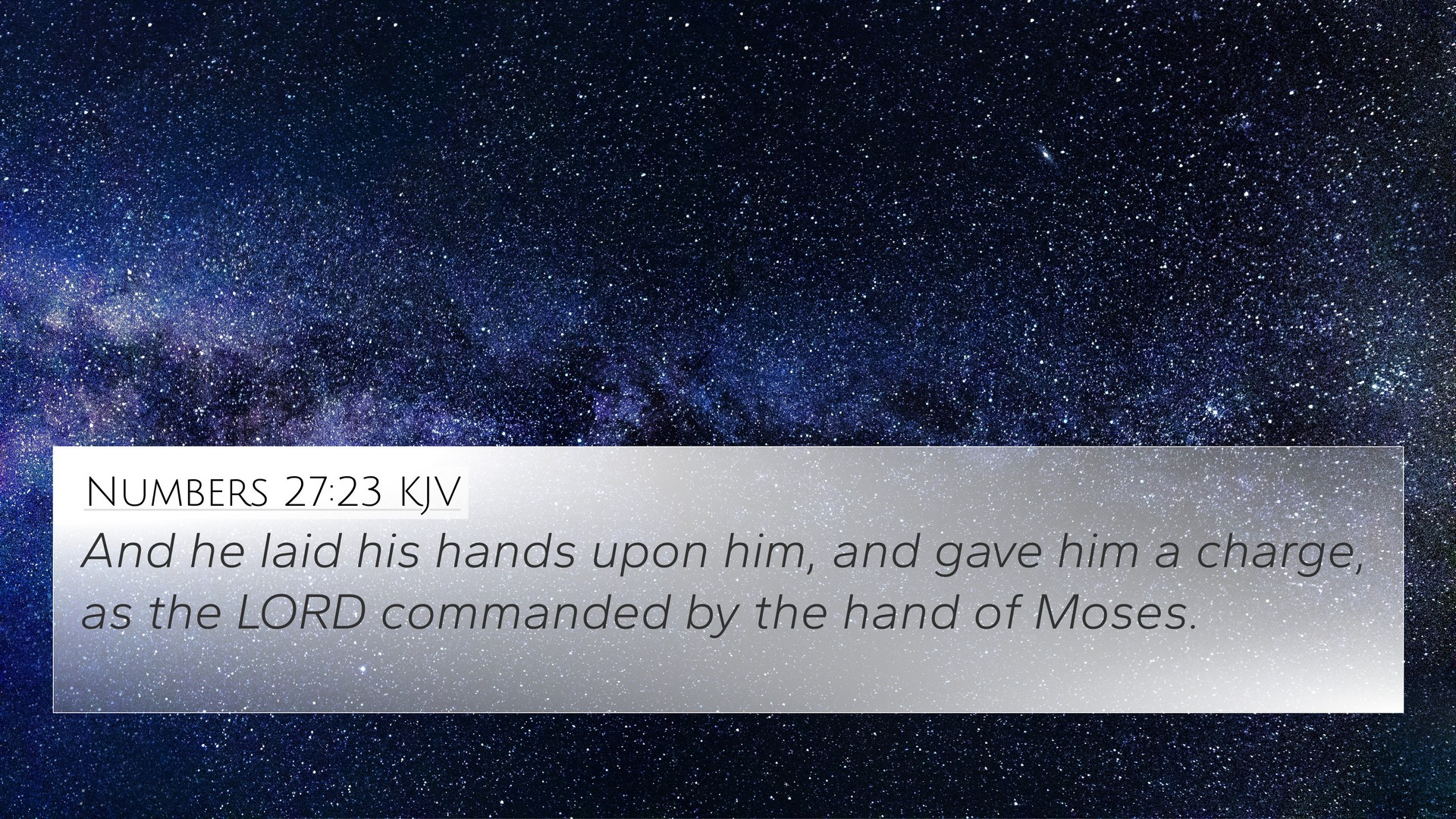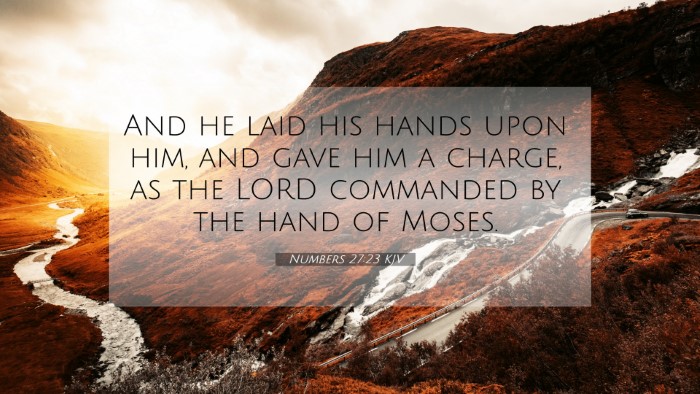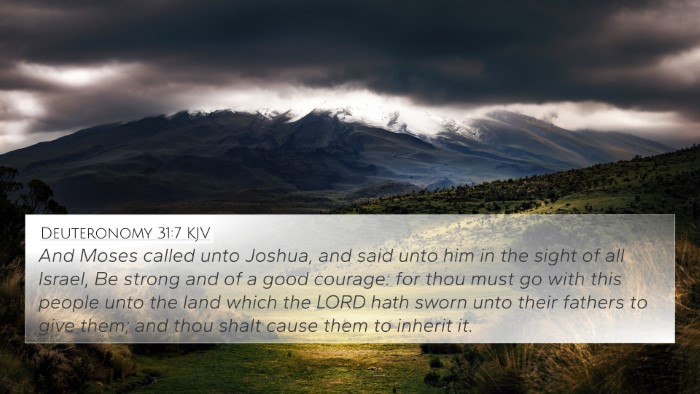Understanding Numbers 27:23
Numbers 27:23 states: "And he laid his hands upon him, and gave him a charge, as the Lord commanded by the hand of Moses." This verse marks a pivotal moment in the transition of leadership from Moses to Joshua, signifying divine appointment and preparation for the responsibilities that lie ahead.
Summary of Biblical Context
In the Book of Numbers, this passage occurs within the broader narrative of Israel's journey in the wilderness. The Lord instructs Moses to appoint Joshua as his successor. This event highlights the importance of leadership under God's guidance.
Commentary Insights
-
Matthew Henry's Commentary:
Henry emphasizes the significance of Moses laying hands on Joshua, indicating not just physical passing of authority but spiritual empowerment. This act serves as a symbol that Joshua is taking on not merely a role but a divine mandate, thus underscoring the seriousness of his charge.
-
Albert Barnes' Notes:
Barnes points out that the command given to Joshua was a direct transmission from God through Moses. It illustrates the continuous line of communication from God to His people and highlights the importance of obedience to divine instruction.
-
Adam Clarke's Commentary:
Clarke reflects on the act of laying on of hands as a typical gesture of commissioning in the scriptures. He notes that Joshua's selection was not arbitrary but a culmination of his faithful service and prior preparation, as displayed during the battles against the Amalekites and as a spy in Canaan.
Significance of the Verse
This verse represents a crucial theme of transitions in biblical leadership. It underscores the process of selecting a leader who is intimately connected with God’s will—a principle that resonates throughout scripture.
Bible Verse Cross-References
Several Bible verses relate closely to Numbers 27:23, providing thematic and contextual connections that enhance understanding:
- Deuteronomy 31:7-8: Moses reassures Joshua of God’s presence and guidance.
- Joshua 1:1-9: The Lord directly commissions Joshua, reiterating strength and courage.
- Exodus 17:11-13: The defeat of Amalekite, showcasing Joshua’s leadership skills previously.
- 1 Timothy 4:14: The New Testament’s parallel on the importance of laying on of hands for leadership.
- Acts 13:2-3: Laying hands on leaders for commissioning in the early church.
- Hebrews 11:32-34: Recognizing the faith of leaders through the ages, paralleling Joshua's faith.
- Numbers 20:7-12: The consequence of disobedience in leadership roles, contrasting Moses's fate with Joshua's calling.
Connections Between Bible Verses
The connections between these scriptures illustrate a retrospective look at God’s unchanging nature in appointing and empowering leaders. Exploring these links provides insights:
- Linking Bible Scriptures: As seen in Joshua and Timothy's accounts, the act of commissioning serves as a divine endorsement.
- Thematic Bible Verse Connections: Leadership appointed through divine means suggests a continuity in the divine plan across testaments.
- Cross-Referencing Biblical Texts: Both Old and New Testaments feature similar acts of commissioning, revealing God’s method of maintaining leadership structure.
Comparative Bible Verse Analysis
Comparative analysis between the texts reveals profound themes of divine authority and the role of spiritual mentorship. Key comparative areas include:
- Authority and Responsibility: The shared burden of leadership as emphasized throughout the selection narratives.
- Spiritual Empowerment: The importance of God's blessing in leadership roles that parallels between Joshua and the apostles.
Bible Cross-Reference Guide
This guide serves as a way to engage deeper with the scripture and understand nuances within the text. Utilizing tools like a Bible concordance allows for:
- How to Find Cross-References in the Bible: Identifying common themes and messages across the Scriptures enhances understanding.
- Cross-Referencing Bible Study Methods: There are various methods such as thematic studies and character studies that can deepen the engagement.
Conclusion
In conclusion, Numbers 27:23 is rich in theological implications concerning leadership, divine appointment, and the continuity of God's work through selected leaders. Through the insights from various public domain commentaries and comprehensive cross-referencing, readers can appreciate the interconnectedness of scriptural themes and teachings. This holistic understanding provides encouragement and clarity in one's spiritual journey.





